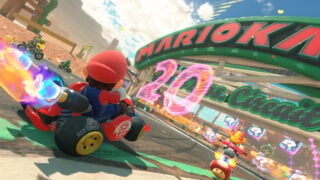Mortal Kombat studio responds to crunch allegations
“We take these matters very seriously,” says NetherRealm

NetherRealm Studios has responded to accusations it encourages extreme working hours and said it’s investigating reports of “toxic” working conditions at the company.
Allegations of poor working conditions at the Mortal Kombat maker surfaced on Twitter in April, before being investigated by various publications including PC Gamer, US Gamer, GamesIndustry.biz and Variety.
The grievances expressed by current and former employees are numerous and date back many years across the development of multiple titles.
Most common is the allegation that even though overtime isn’t mandatory, staff are expected to crunch, and many do so because they fear they’ll lose their jobs or be overlooked for promotions if they don’t.
Mostly anonymous sources spoke of working 100-hour weeks during the development of 2013’s Injustice: Gods Among Us, 2015’s Mortal Kombat X, 2017’s Injustice 2 and this year’s Mortal Kombat 11.
“It wasn’t a 100%, gun-to-the-head sort of thing,” one told GI.biz. “It was the sly thing where they say, ‘We’re not making anybody work overtime. We’re not making anyone do anything.’ But you look at the schedule and you know how long everything takes to make.
“They look at the amount of work they need to get done, and if it doesn’t get done, [management] has the reason to [fire you]. It’s a tricky manoeuvre where they can claim innocence in the fact they didn’t make anyone do anything, but it’s really by coercion.”
A number of sources claimed crunch problems were exacerbated by mismanagement. “Communication at NetherRealm is very, very, very poor,” a current employee said. “Nobody knows that everything’s on fire and there’s a problem until things should have been due a week and a half ago.”
Another source told Variety: “If we had more time or if there was actual project management, we wouldn’t have to be scrambling at the last moment for all these fixes and changes because all the shit broke at the last minute. It’s like the tree is a problem and the roots are all the causes.”
Multiple sources also spoke of a toxic working environment and claimed to have experienced gender discrimination.
“Sexist, transphobic and generally toxic behaviour was rampant, likely due to the fact that people were working 80-plus hours a week for months on end and there was no accountability for such behaviour,” one former female employee told Variety.
Another source told the site: “As far as I know, no women programming contractors have ever gotten hired full-time on the console team.
“The attitude was always that they were doing us a favour by giving us the opportunity to work at a triple-A studio, and we would be easily replaced by many willing to work for little pay and no benefits.”
While not addressing individual cases, NetherRealm gave Variety the following statement in response to the accusations: “At NetherRealm Studios, we greatly appreciate and respect all of our employees and prioritise creating a positive work experience.
“As an equal opportunity employer, we encourage diversity and constantly take steps to reduce crunch time for our employees.
“We are actively looking into all allegations, as we take these matters very seriously and are always working to improve our company environment. There are confidential ways for employees to raise any concerns or issues.”
Crunch is a long-running and widespread issue in games development.
Following a recent investigation into working practices at Epic Games, the company admitted its efforts to maintain Fortnite’s status as the world’s most popular game have resulted in extreme working conditions for some employees, although it claimed 100-hour working weeks are “incredibly rare”.
And following a series of allegations about mismanagement at BioWare and the significant impact it’s had on the health of its workforce, studio general manager Casey Hudson admitted in April “these problems are real and it’s our top priority to continue working to solve them”.














